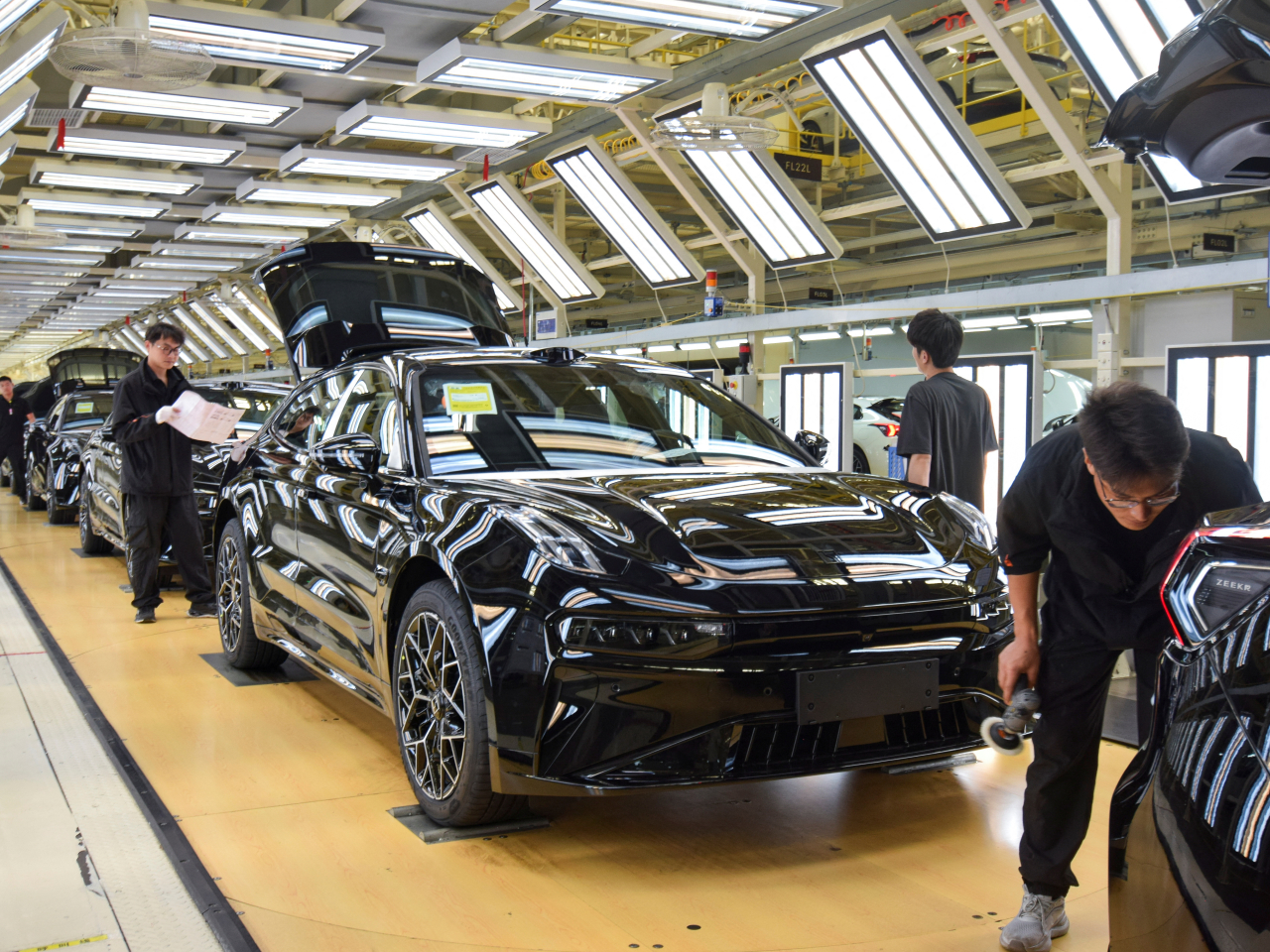Data from the National Bureau of Statistics (NBS) showed that the purchasing managers' index (PMI) for the country's manufacturing sector stood at 49.3 in July, down 0.4 percentage points from June, suggesting a surge in exports ahead of higher US tariffs was starting to fade.
The PMI for the non-manufacturing sector came in at 50.1, down from 50.5, with readings above 50 indicating expansion and below 50 reflecting contraction.
July's reading shows manufacturing activity shrank for a fourth straight month after US and Chinese officials agreed to seek an extension of their 90-day tariff truce on Tuesday.
According to the NBS survey, output growth slowed in July while new orders fell into contraction from June's expansion.
The new export orders sub-index remained in contraction for a 15th straight month, nudging down to 47.1 from 47.7 in June.
Employment was still weak as producers tried to save costs.
Output prices rose to 48.3 from 46.2 in June, reflecting the government's efforts to tackle price wars among producers.
China's economy grew 5.2 percent in the second quarter, ahead of expectations, helped by the government's policy support and US President Donald Trump's decision to pause a massive hike in tariffs to allow further negotiations.
That prompted the International Monetary Fund to lift its forecast on the country's annual growth to 4.8 percent this year compared with a previous forecast for 4 percent.
Top leaders on Wednesday pledged to "manage disorderly competition" among enterprises for the remainder of the year, as steep price cuts among manufacturers fuelled industrial deflation.
"[We] must help foreign trade companies that have been greatly affected and strengthen financing support," Xinhua news agency said, citing the July Politburo meeting.
Analysts have encouraged China to shift away from a state-led, export-driven manufacturing economy to one powered by increased consumer demand.
They said this week's announcement of childcare subsidies is a small but encouraging step towards economic rebalancing.
With authorities striving to spur a flagging birth rate, China will hand out an annual childcare subsidy of 3,600 yuan until age three. (Reuters/Xinhua)





